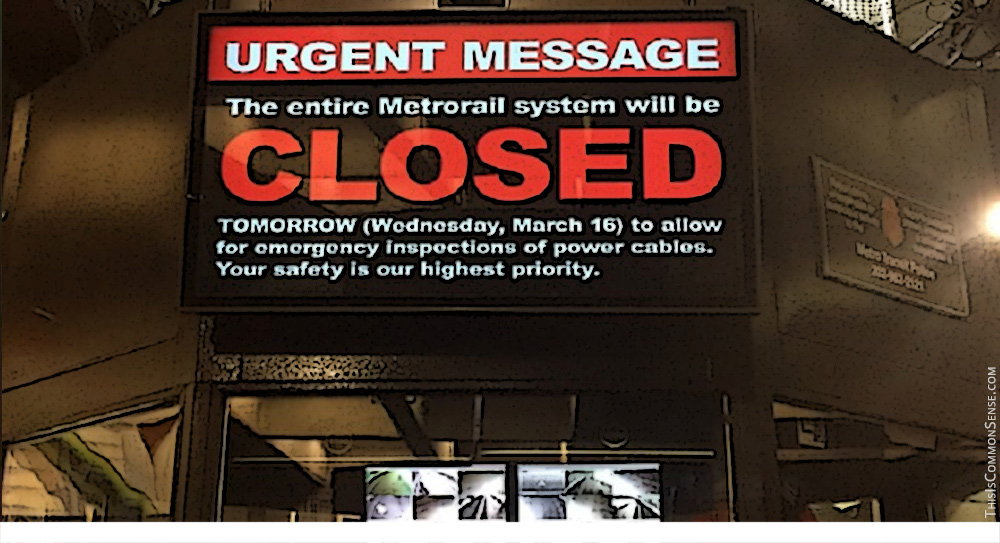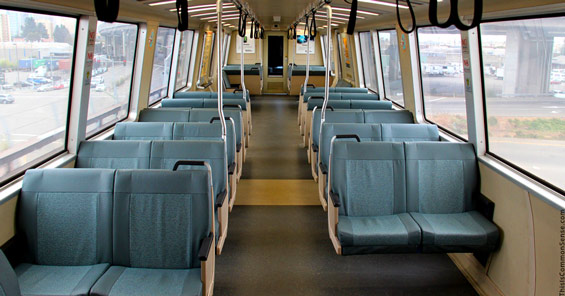Long I have criticized the Washington, DC, Metro — the transit authority in our nation’s imperial capital — most recently in March. But I am foursquare in support of the government body’s recent hazard warning: “Only take Metro if you have no other option.”
Good general principle.
But what’s the particular occasion? There will be “Major 24/7 Construction Activity” for 15 days in mid-August. The service is advising usage of buses and even freely-provided shuttle services to compensate for commuters stuck in the repairs.
Christian Britschgi, writing at Reason, actually dared ride one embattled line. He found what you might expect: a long history of lazy, perverse incompetence at Metro, bordering on corruption. When concrete started falling from the ceiling at one station in 2016, “an internal investigation … uncovered Metro safety inspectors at the station had taken to just cutting and pasting positive evaluations from prior year reports instead of actually checking for damage in some hard-to-reach areas of the station,” Britschgi explains
This is the kind of thing you expect to find in government. Why? Because we don’t allow government projects to go under, even after repeated and massive failures. Ignominy.
Should we be shocked, though? No. Spectacular non-success is close enough for government work. Markets work better because of important communication via profit and loss. Without that stick of loss, governments just take our taxes as their carrot.
Not a whole lot rides on actually serving riders.
This is Common Sense. I’m Paul Jacob.



